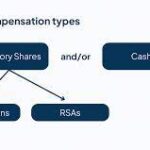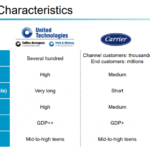
The Addictive Allure of Workaholism in Entrepreneurship
Drybar founder Alli Webb recently referred to workaholism as being “like a drug” in an interview. Her first-hand experience building a hugely successful salon chain lends credence to growing research on the unhealthy repercussions of excessive work culture for both individuals and companies.
The Dangers of Workaholism
All-consuming dedication to growing a business can engender burnout, emotional breakdowns and even mental health crises according to psychologists. Workaholics tend to tie their self-worth tightly to productivity and achievements. As that identity-centric drive continuously ratchets up efforts rather than balancing personal needs, vitality suffers.
For entrepreneurs like Webb, not stopping to come up for air destroyed marriages and severed bonds with children caught in the collateral damage. Beyond harming personal life, her struggles with depression also endangered Drybar.
The Addictive Nature of Workaholism
When describing her early days getting Drybar off the ground, Webb highlighted how intoxicating the momentum felt. The emotional rush of signing first franchisees and welcoming long customer lines quickly “became an addiction” she confessed. Compounding pressures as a first-time female founder in a male-dominated space also compelled her to keep pushing nonstop.
Yet in maintaining an inexorable pace, she lost sight of looming burnout threats. Initially self-care becomes deprioritized for the sake of growing the business. But inadequate rest, support and life balance ultimately catch up with a vengeance.
The Importance of Self-Care and Balance in Entrepreneurship
Watching Alli Webb nearly self-destruct despite Drybar’s external success spotlights the common pitfall of undervaluing founder health. As she learned the hard way, maintaining relationships, sleep, outlets beyond work and support systems pays dividends long-term for sustainable enterprises.
What positive contributing factors get neglected when you don’t step away from the drivers seat? Perhaps attentive parenting, intellectual stimulation from unrelated hobbies or meaningful connections with mentors. Ultimately the costs of ignoring those far outweigh revenues gained from working nonstop.
Cultivating Vulnerability and Self-Awareness as an Entrepreneur
Webb’s recovery from burnout and clinical depression required brutal self-reflection to rebuild on a more balanced and sustainable foundation. Through therapy she evolved a greater willingness to be vulnerable and tunes into warning signs earlier when old habits backslide. Ongoing priority check-ins with herself also bolster resilience.
Owning her mental health challenges rather than feeling ashamed ultimately strengthened her leadership too by forming community with other entrepreneurs facing similar struggles. Her story underscores the importance of constructing support systems, eliminating toxic pressures and respecting limitations in the ongoing entrepreneurial journey.
Conclusion
The meteoric rise of Drybar came at steep costs for its founder and she hopes more entrepreneurs avoid following her workaholic path. Prioritizing holistic self-care and emotional health from the start prevents crisis points as businesses grow. Ultimately positive impacts ripple outward into the culture and bottom lines of enterprises built to last when leaders embody sustainable values in themselves. Work should energize but never consume.






